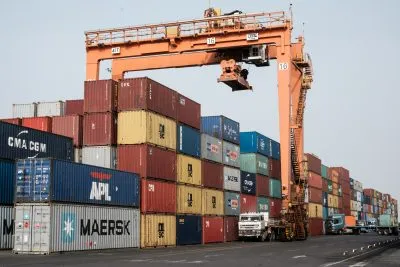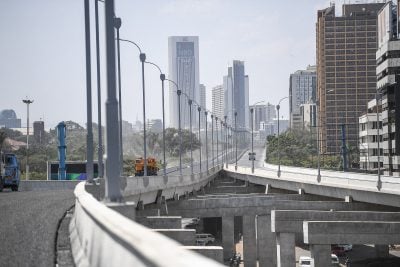According to Dilip Khanna, a partner at Ernst & Young, “from all economic parameters, the next level of growth for India will come from the African continent”, and mining for the resources India needs for its economic development is pivotal to sustaining its remarkable rate of growth in the years ahead.
Mining prospects in Africa present great opportunities for such a commodity-hungry nation as India; the Democratic Republic of Congo (DRC) has around 40% of the world’s cobalt reserves, South Africa has around 90% of the world’s platinum and Guinea has around 30% of the global bauxite reserves and some of the largest deposits of iron ore in the world. The potential of mining is particularly interesting as many areas have not been closely surveyed and so there is likely to be much more to discover.
India has a lot to offer Africa. Its fast-growing economy can provide investment funds, particularly in building mining-related infrastructure. The subcontinent teems with skilled graduates ready to facilitate technology transfer. India also possesses expertise in agriculture that is particularly readily applicable to African farms. Indian firms are keenly pursuing African potash and phosphates for use as fertilisers in Congo, Eritrea, Ethiopia and Ghana. An industry body is calling for the Indian government to establish a $20bn fund for purchasing resource assets overseas.
Nirmalya Kumar, author of India’s Global Powerhouses: How They Are Taking on the World, believes that the scale of Chinese investment in Africa has led to something of a backlash, opening the door to Indian companies. Another factor driving Indian mining investment in Africa is that Environment Minister Jairam Ramesh has prevented the extraction of large quantities of low-grade thermal coal, essential for Indian power production. The country’s Supreme Court judges intervened in 2011, banning all mining in the southern Indian state of Karnataka. The court was responding to a committee’s findings that revealed the scale of deforestation and environment damage being done in the region, where some 35mt of iron ore were being produced each year. These difficulties at home naturally led to Indian companies looking further afield and Africa is particularly attractive – especially since there are sizeable Indian migrant populations present in Africa.
Numerous deals
As a result, there are large numbers of Indian companies engaged in mining in Africa and any number of deals currently in the pipeline. Indian steel giant ArcelorMittal – the world’s largest, producing 10% of all steel made – has a substantial presence on the continent, mining iron ore in Algeria, Mauritania, Senegal and South Africa, in addition to coal and manganese. The company is currently involved in a dispute with Anglo American subsidiary Kumba Iron Ore over the Sishen mine and the termination of a contract to supply ArcelorMittal with ore using a set-price formula.
ArcelorMittal has also announced a $1bn iron ore mining project in Liberia, expected to create around 3,500 direct jobs and another 15,000 to 20,000 indirect jobs. The company has also entered into a $5bn infrastructure joint venture with Indian state oil producer ONGC and has invested $1bn in Nigerian iron ore projects.
Another major Indian steel company, Essar, has just taken over Zimbabwean steel maker Zisco. Essar is expected to invest $750m in the country. In September, Coal India (CIL) over took Reliance Industries (a company that has made over $5bn of investments in Africa and the US) to become India’s most valuable company. CIL’s only overseas operation is in Mozambique, which has rich veins of coal. Another Indian business in that country is Jindal Steel and Power, which also mines in South Africa.
India does not have the coal it needs in the long run. As a result, Indian companies are all over Africa trying to secure the required resources. China and India are the biggest players in the global coal market.
In June, an Indian syndicate comprising of International Coal Ventures, the Steel Authority of India, Coal India, NTPC, NMDC and Rashtriya Ispat Nigam bid for the Talbot Group’s 59% stake in the $1bn Minas de Revuboè coal project in Mozambique. However, in December, Anglo American became the preferred bidder.
Australia’s Universal Coal has had a number of potential suitors from Chinese and Indian companies looking to establish themselves in South Africa. Chairman Dr Antony Harwood observed, “We’ve seen a lot of Indian groups coming through showing interest in our coking coal, and particularly our thermal coal, because access to Indian ports is easy from South Africa,” adding that, “more recently they’ve largely been overtaken by China and South Korea.”
Another canny Indian company that is not afraid of diversifying when it sees an opportunity is Mercator Lines. The shipping company purchased a coal mine in Mozambique in 2008 but production has not yet commenced as scheduled. Executives at the firm are rumoured to be blaming a lack of delivery by local government in terms of infrastructure.
Aside from coal, there is interest in other commodities too. India’s largest miner, Vedanta Resources, has invested some $750m in its Konkola Copper Mines subsidiary company in Zambia. Steel manufacturer Varun Industries is, like Total and Rio Tinto, searching for rare earth metals in Madagascar. China suspended rare earth metal exports to Japan this year, causing prices to rocket. Since China produces more than 90% of these metals, other nations are concerned about diversifying their supply for this vital ingredient for equipment from satnavs to missile guidance systems.
One of the most sought-after commodities by India in Africa is gold, which accounts for some 13% of its imports from Africa. India as a whole consumes 20% of the world’s gold.
More deals are just over the horizon. Billionaire investor Patrice Motsepe, of African Rainbow Minerals, has just reached a deal with Ratan Tata of the Tata Group to cooperate on minerals in Africa and financial services in India. Motsepe commented, “There is a very strong relationship. South African businessmen feel very comfortable in India. It’s like home, and the same can be said about Indian businessmen in South Africa. We have got close to 2m South Africans of Indian origin. We also speak very emotionally about the time Gandhi spent in South Africa. Those are very special, emotional relations. Right now, the strong ties of the past have been translated into strong, competitive and very profitable relationships in the business front.”
Want to continue reading? Subscribe today.
You've read all your free articles for this month! Subscribe now to enjoy full access to our content.
Digital Monthly
£8.00 / month
Receive full unlimited access to our articles, opinions, podcasts and more.
Digital Yearly
£70.00 / year
Our best value offer - save £26 and gain access to all of our digital content for an entire year!
 Sign in with Google
Sign in with Google 



